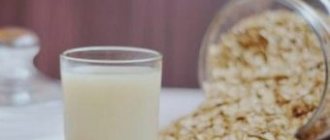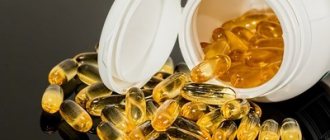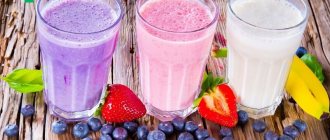In one article it is impossible to cover all the issues related to the use of such a popular dietary supplement as protein, and to definitely recommend a specific protein for gaining muscle mass. But every competent article brings us closer to understanding the basic principles that allow us to choose the right protein for weight gain. It is obvious to the thoughtful reader that the very formulation of the question includes a significant part of the information necessary to obtain the answer: which protein to choose for weight gain? From this it is clear that protein is needed in order to increase muscle mass, that is, to make muscles more voluminous, stronger and more prominent. From this we can conclude that the best proteins for gaining mass are those proteins that allow you to gain this mass (no matter how tautological it may sound).
This means that not every protein supplement that has the word “protein” on the packaging will help you gain weight. And even if it helps, this does not mean that the gained mass will be dry, that is, it will increase the amount of muscle, not fat. Paradoxical? But this is a fact. This happens for two reasons: 1) not all protein supplements are equal in quantity and quality of protein, and 2) each organism is individual and different organisms can perceive even one supplement differently. Therefore, when choosing protein for gaining muscle mass, you should take into account both the nature of specific supplements (their quantitative and qualitative composition, purpose, quality, price, etc.) and the characteristics of your own body (level of fitness, volume of training, individual need for protein, constitution, health status, existing allergic reactions, etc.).
So, let’s try to present the basic information necessary to choose and buy protein, simply and easily, without unnecessary words.
Do you even need protein?
This question among beginners stems from the suspicion that vigorous efforts to promote sports nutrition products are needed to achieve the goals of manufacturers and sellers, and not the goals of athletes. In addition, there are a lot of people who believe that strong and beautiful people with developed muscles existed before, before the production of various supplements, which means that you can do without them. Indeed, why load the body with unnecessary chemicals? Better to eat an extra cutlet.
There are many things that can be argued against this, but we will not argue here. We will give only a simple arithmetic calculation.
Muscle growth requires a positive energy balance. Simply put, you need to get more calories from food than you expend. This is good, but what complicates the situation is that muscle growth also requires regular muscle stress, which can only be provided by constant strength training. That is, you will have to spend a lot of energy. And you need to eat even more. During active sports, you need to consume 1.5-2 g of protein per 1 kg of body weight per day. That is, with a weight of 75 kg, this is 115-150 g of protein per day. In order to get at least 100 g of protein, you need to eat about 400 g of beef or pork (or tuna), or 12 eggs (800 g). In itself, this doesn't seem like a particularly phenomenal task. Just think, eat a 6-egg omelette for breakfast, and a 200-gram piece of meat for lunch. But, firstly, we took this to the minimum, secondly, if your weight is not 75, but 90 kg, then you will need more protein, thirdly, we are talking about the ideal protein norm, which not every real product from a supermarket can provide, so in real life you will have to eat a little more.
And finally, the most important thing. Together with natural products, you will receive many times more fats and carbohydrates than you planned. For example, in meat the share of protein is at best 25%, and everything else is fats and carbohydrates, and the energy value of fats is greater, so the share of protein in the energy value will be even lower. And you need 30-35% protein. Of course, everything can be solved. You can, for example, separate the whites from the yolks in eggs - and it will be almost pure protein (mixed with water). However, the more you exercise and grow, the more protein you will need, and the more protein you need, the more difficult it will become to gain something in your diet. Until the moment when you realize that you will either have to crack dozens of disgusting eggs without yolks, or turn to the achievements of modern civilization.
So you need protein. Although not everyone. Only for those who cannot get the required amount of protein with regular foods without going through carbohydrates and fats at the same time.
We haven’t touched on the issue of the amino acid composition of proteins yet, can you imagine? Because getting the required amount of protein into your diet is still half the battle. It is necessary to ensure that this protein is varied in composition (from animal and plant sources), but generally balanced, because often plant proteins are not completely complete, since they have a reduced content (or complete absence) of some important amino acids. So if the proportion of such inferior proteins in your diet is large enough, then the amount of protein you need daily will need to be increased. Thus, protein for mass gain is a really good solution.
Will protein be harmful to health?
There are so many bad rumors among people about protein, based on the principle “I heard a ringing sound, but I don’t know where it is,” that they simply give up. It’s good that recently people are becoming more and more literate and are learning that protein is just protein. And the supplements that line the shelves of sports stores are just purified protein from natural raw materials (for example, whey, eggs, or soy). In terms of its type and place among food products, it is the same as powdered milk, egg powder, instant coffee, fruit juice made from concentrate, etc.
The protein itself cannot cause harm (if you are a healthy person and do not have any special diseases). Harm can only come from improper use of protein (for example, in very large dosages), or a low-quality product made in violation of technology, which is rare, but is found among some unscrupulous manufacturers who exchange quality for quantity and cheapness.
Some believe that any protein additives - sweeteners, flavors, emulsifiers, etc. - chemicals that are completely harmful to health. In fact, no overtly harmful substances are used in the production of sports nutrition. Horror stories that aspartame (or other similar substances) are harmful to health are most often started by manufacturers of exactly the same additives, trying to squeeze out their competitors.
It is important to understand that a purified and concentrated product produced on a mass scale may not contain any additives because:
a) will quickly deteriorate,
b) will not mix well,
c) has a bad taste.
Don’t listen to armchair theorists who argue that all kinds of food additives (oh, that terrible letter “e”...) are evil. Just try to answer yourself the question: why does your mother put sugar in jam, your dad put salt in pickles, and your grandmother put vinegar in pickled tomatoes? The correct answer is because these are the oldest preservatives and flavor enhancers known to man. Without them, neither you nor anyone else will eat these wonderful, natural, vitamin-rich fruits and vegetables. And there will be nothing to eat, because in two weeks they will become moldy and rot. Even in the refrigerator.
When you read a long list of components on a protein package and wonder why it’s all there, just know that it is this “chemistry” that makes the product shelf-stable for a long time, not caking into lumps, stirs normally, is quite thick and homogeneous, does not form foam, and is acceptable on taste and smell, etc. And say thank you to an unknown manufacturer for taking care of you and the millions of athletes and sports fans like you who don’t want to find mold in an open can of protein on the third day, who don’t want to spend half a day stirring clumping mucus in a glass and then swallow it in one gulp bitter drink, holding back the urge to vomit. Every normal person wants to throw a scoop of prot into the water, spin it, shake the shaker a couple of times with hands trembling after exercise, and drink a delicious milkshake that charges your tormented muscles with nutrition.
Does protein work? And how does it work?
Works. At least, I worked for many thousands of athletes before you. And it will work for you. Just do everything right. Train well. Get enough rest. Organize your diet and eat right. Get the protein you need using protein powder. Do not replace a meal with a protein shake - it is a dietary supplement and not a meal replacement. Don't forget that in addition to protein, your body needs carbohydrates and fats, vitamins and minerals, dietary fiber and electrolytes. And water. And much, much more. Therefore, use protein specifically as a supplement that allows you to fuel your muscles during training or immediately after, as well as in long breaks between main meals, which should be at least 4.
Protein is made up of large protein molecules called polypeptides. It is a kind of natural biological polymer. The entire variety of proteins is formed by two dozen amino acids, interconnected in different orders into polypeptide molecules. In our digestive tract, these polypeptide chains are split first into smaller dipeptide and tripeptide molecules, and then into individual amino acids, which are absorbed into the blood and delivered to their destination. For example, in the muscles. Here, from some amino acids, our own protein is synthesized, which is necessary for muscle growth. And other amino acids are involved in various metabolic processes, in the synthesis of hormones, etc.
Different proteins (from different protein raw materials - whey, eggs, soy, etc.) are broken down by the body and absorbed at different rates. In addition, purified protein will be absorbed faster than the same protein in a natural product, since here the digestive enzymes are not diluted with other substances. And the higher the degree of purification, the faster the protein is absorbed. Whey protein is absorbed the fastest (from 40 to 90 minutes depending on different conditions). Therefore, it is good to take it an hour and a half before training, or immediately after, so that the body’s amino acid reserves are depleted more slowly and restored more quickly.
But casein is absorbed the slowest - from 3 to 6 hours. Therefore, it is good to take it shortly before bedtime or during long breaks when it is not possible to eat normally.
How to make a protein shake at home?
Before you start mixing the ingredients, calculate how much protein you need. How to determine this? Depending on your goal and load, count from 1 to 2.5 grams per kilogram of weight. That is, if a person weighs 100 kg and does strength sports, then he needs to make a protein shake so that it contains 250 grams of protein. Drink all this not at once, of course, but throughout the day. I think this is clear.
Now for the protein shake recipe: there isn't one! It's really just a matter of knowing what ingredients to use and mixing with whatever suits your taste. Personally, I bought protein powder, mixed it with milk and a raw egg. Then I added some flavoring and it was done! You can also use other products containing protein: cottage cheese, soy milk, and so on. By mixing them, we get a wonderful protein shake that is suitable for a variety of purposes!
Recipe 1
Ingredients for 2 servings:
- cottage cheese (1 pack or 180 g)
- milk (600 ml)
- bananas (2 or 3)
- nuts (50 g)
- honey (2-3 tbsp or to taste)
Bring to a smooth consistency with a blender. Don't forget that a protein shake is a complete meal, so drink it between meals.
Recipe 2
Ingredients:
- milk or kefir (250 ml)
- banana (half)
- oatmeal (2-3 spoons)
- cinnamon.
You can also add natural yogurt and ice cream. Grind with a blender and drink in the morning. Also experiment with adding other products: cottage cheese, strawberries and other berries, kiwi, cocoa, natural yogurt, coconut flakes, vanilla and even coffee.
Recipe 3
Ingredients:
- kefir (500 ml)
- cottage cheese (250 or 300 g)
- cocoa powder without additives (5 tsp)
- water (100 ml)
- sweetener.
Dilute cocoa and sweetener with water and bring to a boil. Cook for a minute, stirring constantly, then cool. Add the chocolate mixture to the mixed mixture of cottage cheese and kefir and beat until smooth. Drink after cooling.
Recipe 4
Ingredients:
- milk (250 ml)
- egg (1 pc.)
- sugar (1 tsp)
You can beat it in a blender with a whisk attachment. As always, replace sugar with honey and milk with kefir if desired. If you want to make your protein shake more filling and healthy, add chopped walnuts.
Recipe 5
Ingredients:
- cottage cheese (200 g)
- juice (100 ml)
- kefir (100 ml)
- persimmon (you can also use banana)
Combine, turn into a cocktail and enjoy.
Recipe 6
Ingredients:
- cherry juice (100 ml)
- cottage cheese (100 g)
- egg white
- sweeten to taste
Don't forget that natural juice is always preferable.
Which protein to choose for weight gain?
Any one that suits you personally. To quickly suppress catabolism (muscle breakdown) and stimulate protein synthesis after exercise, whey protein is best. Moreover, isolate is better than concentrate. True, BCAA is even better and faster. And cheaper than many isolates. No protein can ever compare with amino acid complexes in terms of speed and ease of absorption. So there is no point in chasing isolates and hydrolysates. Protein is good not for the speed of absorption, but for the completeness of its amino acid composition. Therefore, it is better to drink whey protein concentrate before training, and BCAA after training. And before bed - casein.
Since it is important for you to gain muscle mass, there is no point in chasing some kind of super-purified protein. Concentrate is fine. And even if you find 15-20% carbohydrates in the composition, this is not very critical for those gaining weight. The main thing is that you don’t have to overpay for some superfood that contains at most 60% protein.
Try 3-4 proteins from different manufacturers - and you will have a good understanding of the sports nutrition market and know the specific policies of these manufacturers. By the way, you don’t have to buy a whole jar for this - this can be done in fitness bars.
And a few more nuances.
Protein shakes for gaining muscle mass
The main task of protein shakes is to maintain a high level of proteins in the human body, which are necessary for a stable gain of muscle mass. Most cocktails are taken within 40 minutes. before a grueling workout, and then 30 minutes later. after. But it's worth remembering:
- the volume of the cocktail drunk should not be more than 300 ml;
- The cocktail temperature should be 36-37 degrees.
Cocktails can also be drunk in the morning and before bed. Of course, it is more advisable to give preference to natural protein shakes that you can prepare yourself.
Preparing protein shakes at home to gain muscle mass will not present any special difficulties or efforts; for this you need:
- mix 100 gr. cottage cheese, 1 tbsp. milk, 1 banana, 2 tbsp. lie oatmeal, 1 tbsp. lie honey Beat with a blender. The cocktail is ready;
- mix half a liter of milk, 1 ice cream (100 g), 2 bananas, vanilla and cinnamon to taste. Grind with a blender or beat with a mixer;
- mix thoroughly: 1 egg, 1 tbsp. lie honey, 1 tbsp. kefir, 1 tbsp. chopped walnuts. Beat with a mixer;
- mix 200 gr. cottage cheese, 60 gr. egg powder (diluted with milk), 50 gr. honey, 5 eggs, 1 tbsp. sour cream, 50 gr. any berries. Beat with a mixer.
Soy protein - how scary is it?
A normal thinking person is not afraid at all. After a good omelet, you won’t be pecked in your sleep by chickens that could have hatched from the eggs you ate. Why should soybeans, biologically not much different from beans and peas, scare us?
The argument of many authors writing about protein is based on the scheme “I don’t know what’s the matter, but just in case, I’ll say that it’s better not to drink soy protein.”
What are the actual facts? Soybean is a plant that produces beans rich in protein. The cost of protein from soybeans is much lower than that of proteins from other raw materials. The biological value of soy protein is slightly lower than that of whey and egg protein, due to the fact that the amino acid profile is slightly worse and there are substances that slow down the absorption of this protein. Yes, from this point of view, soy protein is a little worse than others. But it is many times cheaper.
Soy protein is not bad or harmful. He's just different. And it takes its well-deserved place in the line of proteins, just as the automobile line is not limited to Ferraris and Porsches, but also includes fawns and Fords.
Is it possible to add raw eggs to a cocktail?
The drink can be purchased ready-made or prepared independently at home. The second option is more preferable, since store-bought drinks contain preservatives that promote long-term storage.
A homemade protein shake is prepared from eggs and protein powder itself. The drink uses mainly raw eggs. Since the calorie content of chicken protein is much lower, usually the yolk in a cocktail is consumed extremely rarely, only to increase body weight.
If raw protein causes disgust, the egg can be pre-heat-treated and used in a boiled drink. Raw protein can also be a source of infectious diseases, so if you are not sure about the quality of eggs, it is recommended to boil them first.
The protein of a raw egg is absorbed only 60%, while a boiled one is absorbed in full.
Boiled protein must be ground until a homogeneous mass is formed so that there are no lumps in the drink. This is done using a mixer or blender.
Egg whites can be replaced with egg powder. They also make a protein shake from quail eggs. The result is a healthy, low-calorie drink. Although its cost increases significantly, the beneficial properties of quail eggs are much higher than chicken eggs. For example, the iron content in quail eggs is 4.5 times higher than in chicken eggs, so such a cocktail is especially useful for anemia, exhaustion, after surgery, or simply with an increased need for iron.
Problems after taking protein
Some protein reviews contain information that the authors had problems with the gastrointestinal tract, etc. If it happens that you also have any problems, then pay attention to the composition of this protein. Try to reduce the dosage, since our body is not able to absorb more than 30 g of protein at one time (and for many this bar is even lower). Try a different protein, preferably one without thickeners, because thickeners like guar gum can cause gastrointestinal problems. In other words, try to clarify what exactly the problem is - in the protein itself, or in the accompanying components. Today on the sports nutrition market there are both multicomponent mixtures with all sorts of amino acids, enzymes and God knows what else, as well as practically sterile protein containing nothing except raw materials. It will be less tasty, but as natural as possible and, possibly, will cause fewer health problems.











